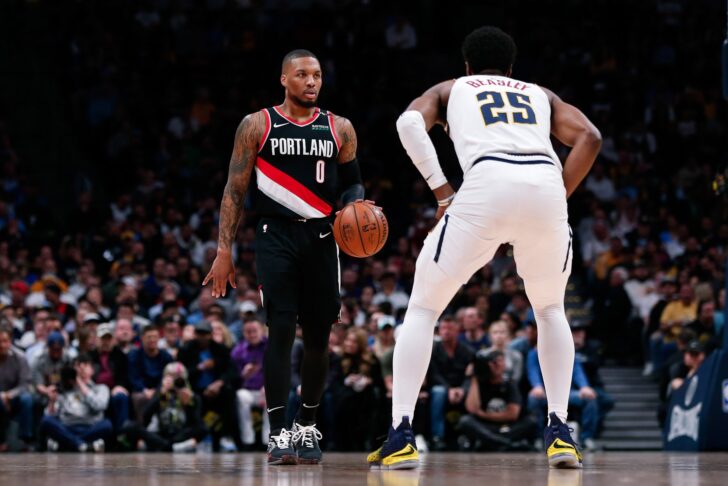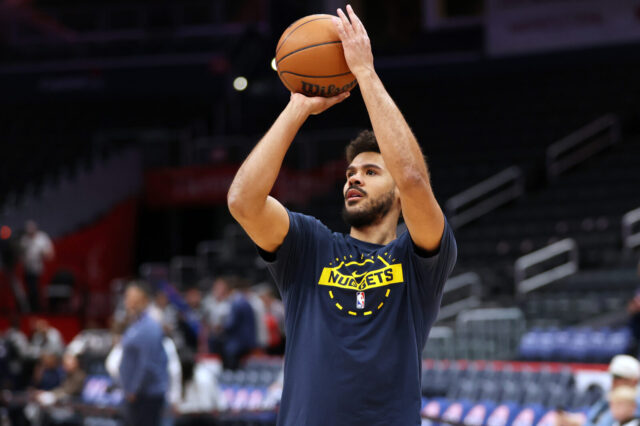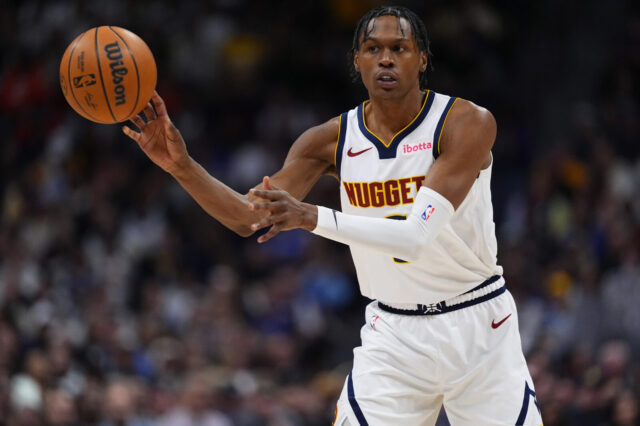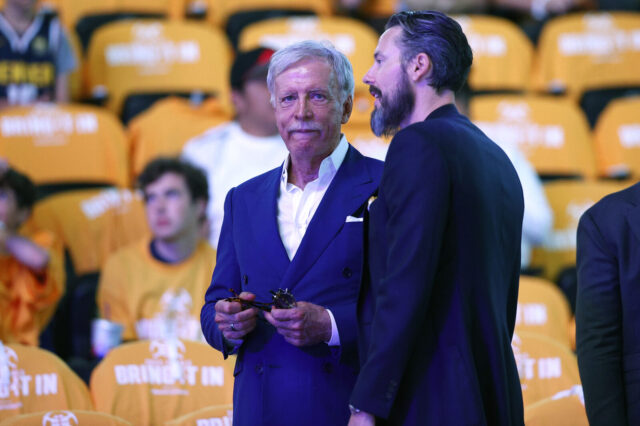The look on Damian Lillard’s face did not match the gaudy number by his name on the scoreboard.
Thirty-nine points.
And Dame was frowning, pouting, shaking his head, glaring, scowling.
Seems like a basketball player who delivers that kind of dominant performance should be all smiles. Thirty-nine points is no joke, especially when the opposition is willing to exhaust half the roster in an effort to stop just one player. In Game 1 against the Nuggets, Lillard was double teamed, picked up at half court on nearly every possession, bumped, rubbed, checked and fouled.
Still, he nearly scored 40.
Still, he was visibly frustrated, angered or both.
Lillard is going to do what Lillard is capable of doing. And the Nuggets aren’t going to stop it. Quite frankly, and with all due respect to Nikola Jokic, Lillard is, and will be, the best player on the floor throughout this entire series. Lillard is that good, a special talent, a bona fide NBA superstar. While Jokic is rightfully shoving his way into the superstar discussion, Lillard has been there for a while now. If he’s to be crowned a superstar, Jokic will likely re-write the definition of what an “NBA Superstar” can be – he’s just a different kind of player. Lillard, conversely, fits the current demarcation to a tee.
Lillard will get his 39, or something close in each game of the series with Denver.
So long as he’s griping and moaning and mad, though, the Nuggets should be pleased as punch. The recipe in Denver should be simple: Let Lillard be Lillard, just don’t let anyone else be better than they are.
That doesn’t mean the Nuggets need not worry about Lillard. If they don’t attempt to give him fits during every second of every game, he could easily score 50, maybe 60. But it’s a double-edged sword – a player like Lillard can score 30 as easily as he steps off the bus; he knows he can score 30, knows he should score 30, and doesn’t want to rely on his teammates to pick up the slack in the event he inexplicably turns in a 15 or 20 point night. As such, a lot of energy will be exerted simply to produce what’s expected of him.
Especially when the likes of Torrey Craig and Gary Harris are draped all over him all night, every night.
There was a reason Enes Kanter had 26 points, and it’s not because he’s anywhere near as good as Nikola Jokic. It’s because the Nuggets deployed anyone and everyone to stop Lillard from beating them off the high pick. Sometimes that duty fell to Jokic, leaving Kanter to do as he pleased.
Fine. If you’re the Nuggets, that’s just dandy. If the game is placed in the hands of Kanter and not Lillard, it’s safe to assume that everyone in Denver can live with that.
Eleven of Lillard’s 39 points came at the charity stripe, but there was nothing charitable about how those trips to the line were earned. If and when Lillard’s defender was beat, it was almost certain that Lillard was going to get fouled – “make him earn ‘em” seemed to be the motto. With one of the deepest benches in the NBA, using fouls on Lillard shouldn’t be a problem. In fact, one might go as far as to say it’s a strategy.
It’s probably irresponsible to suggest that the Nuggets were inside Damian Lillard’s head on Monday night – he’s too good for that.
But it is safe to say one of the game’s best players was visibly frustrated.
Wouldn’t you be if you scored 39 and lost?
And if they Nuggets can stick to the plan during Game 2, Dame’s gonna Dame, and the Nuggets gonna win.



